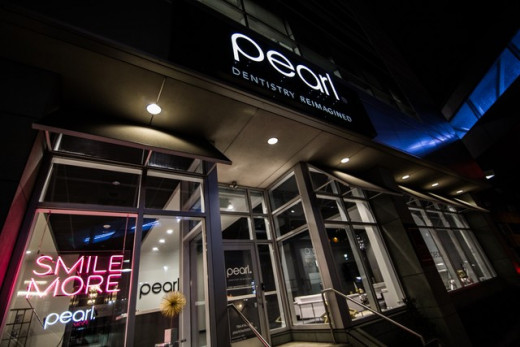Dental veneers are sometimes called dental porcelain laminates or porcelain veneers. They are wafer-thin, custom-made shells that are designed to resemble natural teeth and are placed on the front part of the tooth in order to enhance the tooth’s appearance. These veneers usually change the size, shape, length, and color of the tooth since they are placed in the front. Dental veneers are usually made from resin composite or porcelain material. The porcelain veneers stain better, and therefore they will mimic the reflecting light property of natural teeth. The resin veneers are usually thin and before they are placed, some part of the tooth has to be removed. You will need to discuss with your dentist about the most suitable type of veneer that you should use.
Types of Problems That Dental Veneers Can Fix
- Teeth discoloration.
- Worn-down teeth.
- Broken or chipped teeth.
- Uneven, misaligned or irregularly shaped teeth, for example, those which have bulges or craters on them.
The stains caused by tetracycline and other drugs, root canal treatment, beverages such as red wine, excessive fluoride, discoloration caused by large resin filling or any other cause can be fixed by the Charlotte veneers. Irregularly shaped teeth can also be fixed by veneers because they are custom-made shells to improve the appearance of teeth.
The Process of Getting Dental Veneers in Charlotte
Getting dental veneers normally requires about three visits to the dentist. The first is to consult with the dentist, and the other two appointments are to make and to apply the veneer. An individual can simultaneously undergo a veneering process for one or more teeth. The process will involve:
1. Diagnosis And Having A Treatment Plan
You will have to explain your condition to your dentist and tell him or her the kind of results that you wish to achieve. During the consultation stage, your dentist should examine your teeth to see if you can have the veneer placed on your teeth. The dentist should then discuss the procedures you should expect and explain the advantages and disadvantages. The dentist could also take an x-ray which will be used in making an impression for your teeth and mouth.
2. Preparation Procedure
Your dentist can remove a section of your teeth that is around 0.5 millimeters of the enamel surface in order to prepare for the placement of the veneer. Before your dentist trims off a section of your enamel, he or she will decide if there is a need for using a local anesthetic for numbing the region. The dentist will then make an impression of your tooth or teeth. This impression will then be sent to a dental laboratory to make your dental veneer.
3. Teeth Bonding
Your dentist will temporarily place the dental veneer on your teeth to see the coloring and to see if it fits well before he/she permanently cements it on your teeth. The color of the veneer may be adjusted considering the shade of cement being used. To prepare your teeth to get the veneer, it will be cleaned thoroughly, polished, and then etched with roughness in order to give a strong framework for the bonding process. A specific kind of cement will then be used in the placement of the veneer. After the veneer is placed properly, the dentist will then apply a special kind of beam that will activate the chemicals present in the cement to enhance its healing process and make it stronger.
The dentist will then remove any excess cement from the teeth and check your bite. He or she will then make final adjustments if need be. Your dentist could also ask you for several appointments after the placement for him to check the response of your gums to the veneer and also to examine the placement of the veneer.
Advantages of Using Dental Veneers
• Dental veneers Charlotte offer a natural appearance to teeth.
• The gum tissues normally tolerate the porcelain well.
• The porcelain veneers are usually stain-resistant.
• A dentist can choose the color of the veneers to a patient in such a way that their darker teeth will appear to be white.
• Dental veneers give a nice approach to changing the tooth shape and color. Veneers Charlotte do not need extensive shaping as compared to the crowns yet they offer a more anesthetic and stronger alternative.
Care Needed For the Veneers
There is no special care needed for dental veneers Charlotte. An individual should have good oral hygiene practices such as flossing, brushing twice daily, and rinsing the mouth with the antiseptic mouthwash. Although porcelain is resistant to stains, your dentist could advise you not to have foods that easily stain the teeth such as the coffee.
To learn more about the minimally invasive process and when you should replace veneers, visit our blog.




